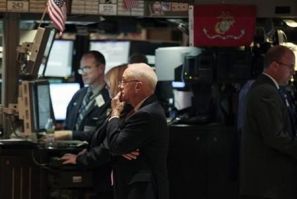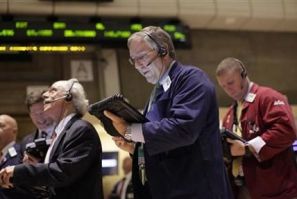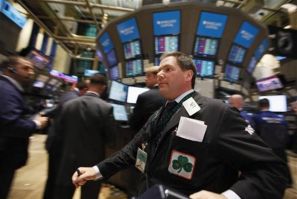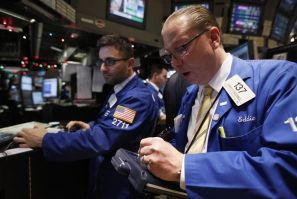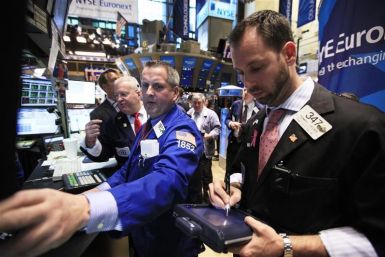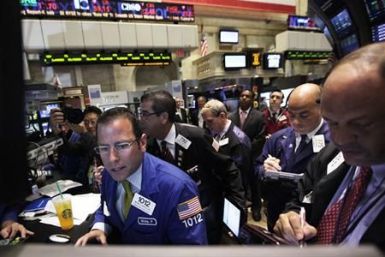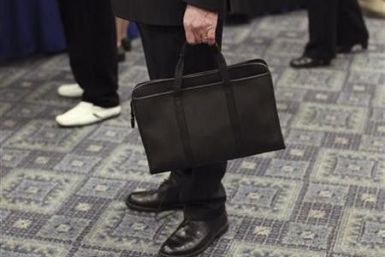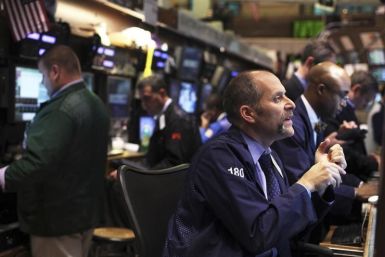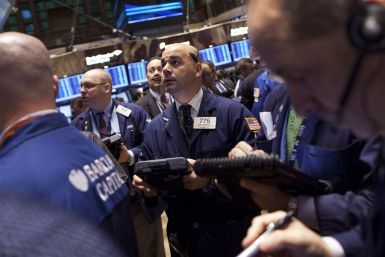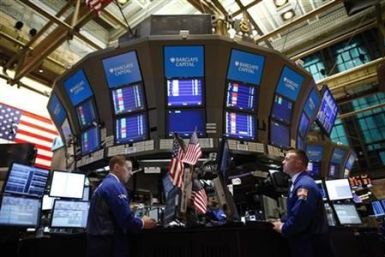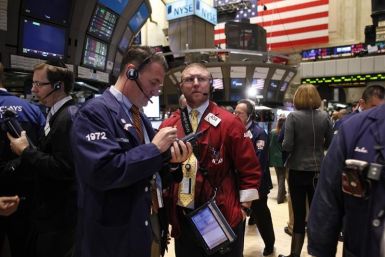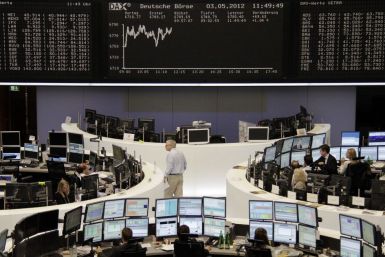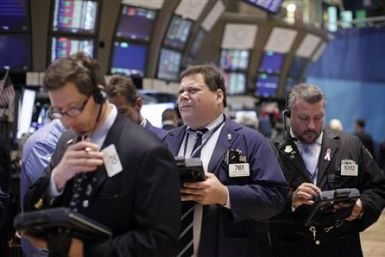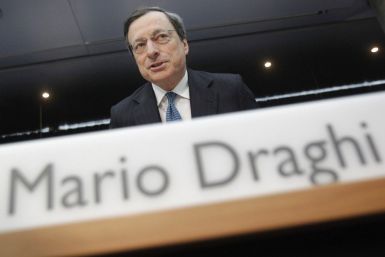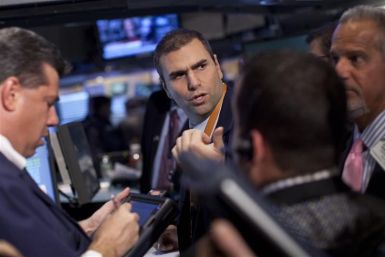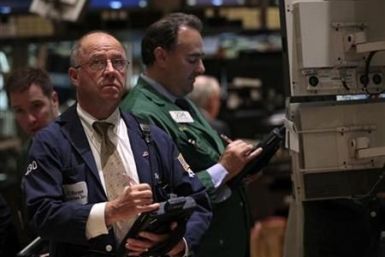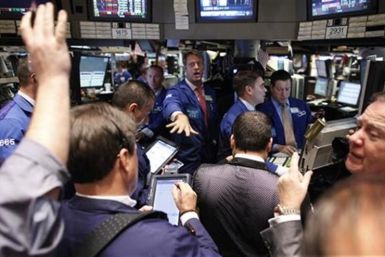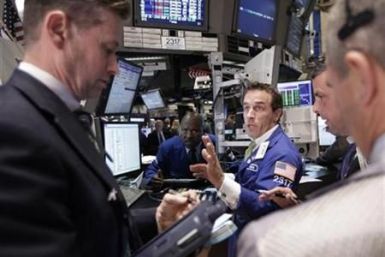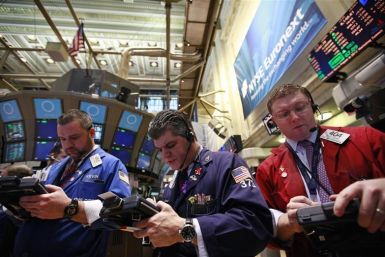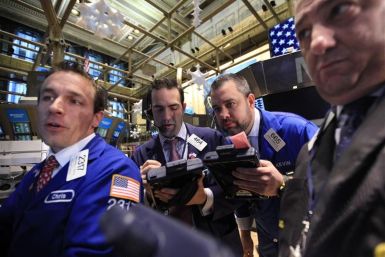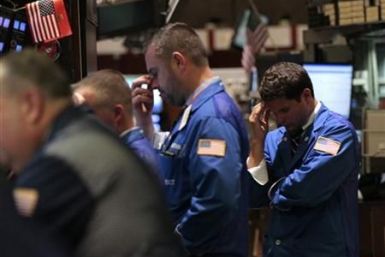U.S. stock index futures point to a lower open Monday as investor confidence was dragged down by concerns about the weakening of the global economy following the fragile gross domestic product growth in Japan in the second quarter.
U.S. stock index futures pointed to a lower open Friday as China's trade data for July fell short of expectations.
The number of Americans lining up for new jobless benefits fell unexpectedly last week, the Labor Department said Thursday, suggesting that the battered labor market is healing.
U.S. stock index futures point to a higher open Thursday ahead of the Labor Department's weekly jobless claims data and the Bureau of Economic Analysis' trade balance report.
U.S. stock index futures point to a lower open Wednesday as investor sentiment was weighed down by lack of stimulus measures from policy makers around the globe to rejuvenate the faltering economic growth momentum.
The S&P 500 rose above 1,400 for the first time since May 3 behind further calls for another central bank stimulus and hopes that the European Central Bank will take action.
U.S. stock index futures point to a higher open Tuesday as investors continue to expect the European Central Bank to implement new policy measures to rejuvenate the euro zone economy.
Rupert Murdoch's News Corp. (Nasdaq: NWSA), the world's third-largest media company by market capitalization, is expected to have lower fiscal fourth quarter earnings as its cable television and film revenue declines.
U.S. stock index futures pointed to a mixed open Monday as investor worries about the weakening economy were alleviated following the recovery in the jobs data in July.
The pressures on the Washington Post Co., the sixth-largest U.S. newspaper group by circulation, are twofold: the erosion in advertising and circulation revenue of its print properties, and the plunging profit of Kaplan, its for-profit education division, as the federal government enacts more regulations.
The U.S. government's report Friday that 163,000 jobs were created last month, far more than expected, sparked a risk-on sentiment among investors.
U.S. stock index futures point to a higher opening Friday ahead of the Bureau of Labor Statistics' nonfarm payrolls report and unemployment report.
ECB President Mario Draghi was in policy hell Thursday after disappointing market-watchers at what was the most anticipated and important press conference of his career as a monetary policy leader.
The number of Americans lining up for new jobless benefits last week rose less than expected, the Labor Department said Thursday, partly reflecting the volatility of applications during the annual auto-plant retooling period.
U.S. stock index futures point to a higher opening Thursday with investors keeping a close watch on the European Central Bank meeting later in the day, which is expected to announce stimulus measures to revive the economic growth.
U.S. stock index futures point to a higher opening Wednesday as investors were hopeful that stimulus measures will be announced in the Federal Reserve?s meeting to declare policy action.
U.S. stock index futures point to a higher opening Tuesday as investors were optimistic that the Federal Reserve will announce monetary easing measures to rejuvenate the economy and regain the growth momentum.
U.S. stock index futures point to a lower opening Monday as investors remained cautious while waiting for the central banks around the world to announce stimulus measures to recover the economic growth.
U.S. stock index futures point to a higher opening Friday following expectation among investors that central banks around the world will announce stimulus measures to regain the economic growth momentum.
U.S. stock index futures point to a lower opening Thursday ahead of the Department of Labor's weekly jobless claims data and the Census Bureau's the durable goods orders data.
The U.S. stock index futures pointed to a lower opening Wednesday as investor confidence continued to be dragged down with no resolution to the euro zone crisis visible on the horizon.
U.S. stock index futures point to a flat opening Tuesday as investor sentiment continue to be affected by the mounting borrowing costs faced by Spain and worsening economic condition of Greece.




